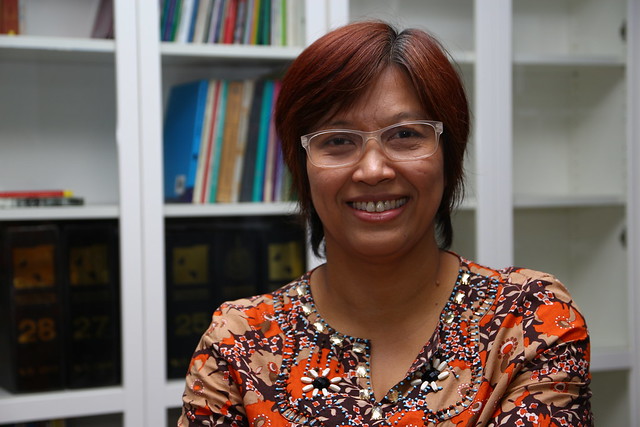On the occasion of International Human Rights Day on 10 December, the French Embassy in Bangkok will present an award to the
Thai Lawyers for Human Rights, which provides legal assistance to those affected by the 2014 military coup d’état.
This is the first time that the Embassy has given such an award. The award ceremony will be held on the evening of 9 December at the French Residence. The Embassy says in its press release issued last week that the promotion of human rights is one of the priorities of France and the EU.
For more than six months that the centre has been established, this small organization, composed of six full-time lawyers, have provided legal assistance and representation to clients in cases related to the coup d’état and violations of human rights. For example, they represented and assisted people arrested for protesting the coup, people who were arrested and charged with Article 112 or the Lèse-majesté law, and people who were summoned by the military to report in.
Prachatai’s Thaweeporn Kummetha talks with Yaowalak Anupan, a veteran lawyer, head and co-founder of the centre about the award, and the obstacles they face when working for human rights during a time when Thailand is deprived of such rights.
Yaowalak Anupan
Are you happy with the award?
Yes we are all very happy. It gives us moral courage to continue working as lawyers under the special law and to face many obstacles and to fight on without being deterred.
Why do you think that the centre has been granted the award?
Maybe because we’re one of not so many organizations which work directly and extensively with people affected by the coup. The government has used lots of special powers. The situation is unusual but we try our best to make sure everyone has access to basic rights.
Have you felt unsafe or fear working as lawyers in this situation?
Yes, we feel that we are watched by people in power. However, our lawyers are not afraid of that power. We insist on continuing to work professionally.
Have your lawyers been threatened or intimidated?
No, we have never been threatened. But a lawyer was once called “bandit lawyer." The lawyer went to visit a person arrested and detained for showing the anti-coup symbol. A soldier then called that lawyer “bandit lawyer" The soldiers don’t understand about the basic rights of suspects. They don’t understand that every suspect is innocent if the court has not found them guilty. The suspects also have the right to see lawyers.
How the centre was established? What was the thought at that time?
We were established two days after the coup. I got this idea on 23 May when there was a protest against the coup in front of the Bangkok Art and Culture Centre and a few people were arrested. After that, the military summoned people to report in. So on 24 May, we gathered and established the Thai Lawyers for Human Rights. All of the lawyers are anti-coup. At first most of us were young lawyers, and the senior lawyers joined later.
We thought that in these difficult times there are so many limitations of rights and freedoms. Media and academics are harassed. So we, as lawyers, think that we should do something.
We have to thank many organizations which support us, such as iLaw, Cross Cultural Foundation, International Commission of Jurists, United Nations, European Union, British Embassy, Canadian Embassy, among others.
We now have six full time lawyers and about 10 volunteers. Our organization is fast growing because we are very hard-working. Moreover, there is new work every day, or in other words, there are new people detained and arrested every day. We are also a fast-moving unit in arriving at the scene.
When you established the centre, did you ever think that it would last this long -- for more than six months after the coup?
At first, I didn’t think it would last this long. I thought it would be just a one-off action and we would later be less busy day by day. However, people are still getting arrested every day. The junta still uses severe measures to suppress dissidents. We didn’t think we would have so much work like today.
As a lawyer, who normally works in a civilian court, do you face any difficulty working at a military court?
It’s quite difficult to access the case files. Normally, at the court of justice, lawyers can copy any document, but we can’t at the military court. In a civilian court, defendants will get the case file within the day that they are indicted, but at the military court, the defendants receive the case file about a month later. This makes it more difficult and slower for the defendants to get justice.
How do you see your fellow lawyers and other lawyer organizations, and their roles after the coup?
Normally, lawyers in some professional lawyer organizations are serving this undemocratic power. We urge them to review their role and whether they are adhering to the lawyers’ code of conduct. In the past few years, the professional organizations have not adhered to the law, but helped in tearing up the constitution. They should consider if they are still lawyers who stick to the law.
What are the centre’s biggest concerns regarding the human rights situation in Thailand?
First, the use of martial law to detain a person for more than seven days without declaring the whereabouts of the detainee and without granting the detainee access to lawyers. Martial law is for use during wartime, but the junta currently uses martial law to crack down on dissidents. We urge the junta to lift martial law.
Secondly, civilians should not be tried in military courts.

